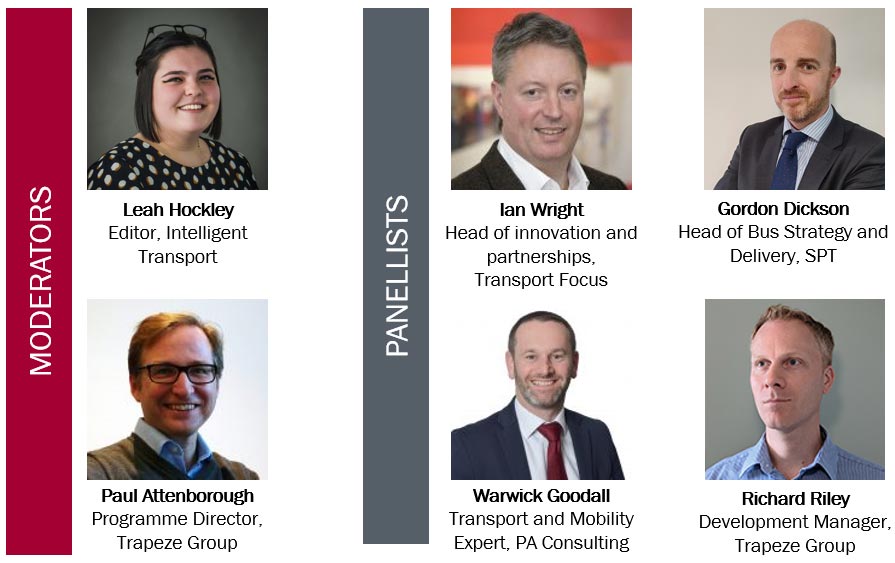Delivering Reliable Passenger Information in an Unreliable World
“The industry has shown a remarkable ability to adapt in response to Covid. Given the expectations of increasing technology disruption in the future, how do we ensure we meet rising passenger expectations for more predictable, reliable bus services?”
This was one of the questions addressed by an expert panel during a lively Intelligent Transport webinar on 28 September.
Transport Focus’s Ian Wright explained that while passenger expectations are naturally rising, the core requirements for bus users remain largely the same: affordability, convenience and control.
But as Warwick Goodall from PA Consulting explained, in an increasingly disrupted world this places ever more pressure on transport providers. The task today is to reimagine the bus experience, ensuring it is simpler than the car, cheaper than Uber, as green as cycling, and inclusive for all.
To deliver this experience, ‘real-time’ information must also evolve, enhancing the passenger experience, while unlocking improvements for bus drivers and greater efficiency for operators and authorities.
As Trapeze Group’s Richard Riley explained, technology is already moving in this direction. In the months to come the concept of ‘true’ real-time will emerge, distinguishing between prediction times which can currently be delivered, and instantly available, completely reliable passenger information.
Richard explained how the linking of schedule and ITS solutions reduces information latency, ensuring that accurate service information reaches the public even through short-term schedule changes.
Meanwhile, ‘Delta encoding’ is a way of storing or transmitting data in the form of differences between data rather than complete files, which minimises data transfer requirements – ensuring that even the largest and most complex networks can access accurate information through significant service disruption.
Finally, by harnessing machine learning we can not only deliver information better; we can deliver better information. Completely accurate full journey prediction times – based on historic and current data – will enable passengers to trust the bus at all times, enabling it to remain the cornerstone of their mobility plans.
Disruption has become a major part of life over the past two years, and most observers expect this to continue in the future. By harnessing ‘true’ real-time information we can upgrade our ability to adapt to a changing world – ensuring buses remain the reliable, sustainable mobility solution for the next 20 years.
